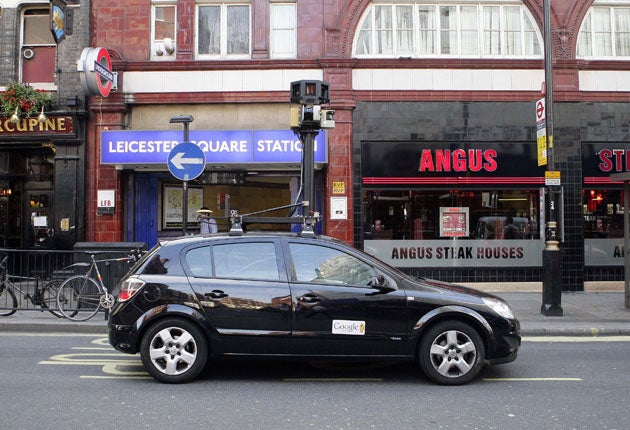Councils and police rebuked for hi-tech snooping on public
Surveillance watchdog says powers intended to fight terrorism are being overused by authorities

Britain's surveillance watchdog has reprimanded police forces, councils and government departments for overusing powers intended to clamp down on terrorism to snoop on members of the public.
In a report to the Prime Minister, Sir Christopher Rose, the chief surveillance commissioner, warned that public authorities were increasingly using digital cameras and sound equipment that can provide permanent monitoring of suspects, from alleged criminals to noisy neighbours.
The findings come amid lingering concerns over the use of wide-ranging powers, originally designed to fight terrorism, to spy on ordinary members of the public. The Government has vowed to curb abuses of the Regulation of Investigatory Powers Act (RIPA), after it emerged that councils have used it during investigations into "bin crimes", breaches of school catchment area rules and thefts from allotments.
A series of individual surveillance commissioners' reports on public bodies, obtained by The Independent on Sunday, have detailed a catalogue of failings, including the Department of Work and Pensions being chastised for "unwittingly" using the public as covert informants.
The department, which authorises more direct surveillance operations than any other public body, was also found to be using Google Maps and "Streetview" for reconnaissance on suspected benefits cheats.
Privacy pressure groups have called for councils to be stripped of their powers to launch covert surveillance operations. They also demanded tighter monitoring of their behaviour.
Daniel Hamilton, director of Big Brother Watch, branded Sir Christopher a "toothless tiger" whose warnings were not taken seriously enough.
He said: "We would like to see councils lose their powers of intrusion under RIPA, so we are delighted that the Freedoms Bill will see these powers reined in. Officers won't simply be able to launch intrusive incursions into people's homes without first seeking the permission of a magistrate.
Sir Christopher's report recorded more than 2,700 authorisations of "property interference" for investigators in the UK last year. He also found that there were almost 400 examples of "intrusive surveillance" – where investigators enter a suspect's property to carry out monitoring – and 13,780 of "directed surveillance". Law enforcement agencies recruited more than 4,000 "covert human intelligence sources".
Although he said he was "broadly satisfied" with the behaviour of operatives, the commissioner warned that tighter budgets were encouraging more covert operations. Sir Christopher also said the proposed restrictions contained in the Government's Protection of Freedoms Bill "seemto have caused some concern that lower-level crime and misbehaviour will not be dealt with effectively".
The report warned that "some public authorities are purchasing highly intrusive technical capability without properly considering the legislative implications of its use".
The DWP inspection report, obtained under Freedom of Information legislation, found that officials felt under increasing pressure from prosecutors to use covert surveillance to prove a case against a potential benefit fraudster. One member of staff admitted that he found this "uncomfortable, it being a last resort".
Inspectors also uncovered confusion over what counts as a covert human intelligence source, raising concerns that DWP investigators were unwittingly using secret informants – against departmental policy – without offering them any protection.
Bookmark popover
Removed from bookmarks